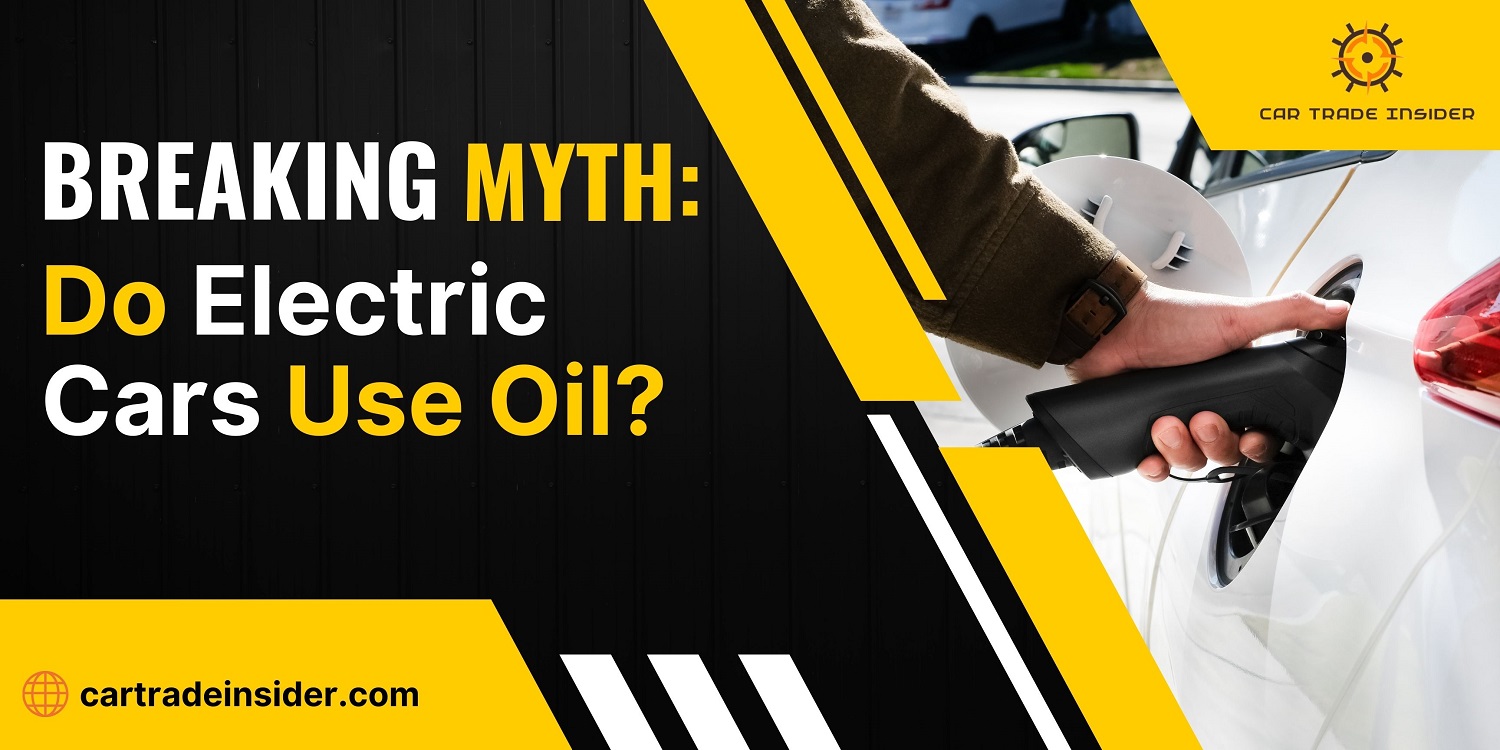No, Electric cars do not use oil. Unlike traditional gasoline-powered vehicles, electric vehicles operate without an internal combustion engine, so there’s no need for oil. However, they still require other fluids like brake fluid and battery coolant for optimal performance.”
Electric cars are cool, right? They zip around silently, saving the planet while we enjoy a smooth ride. But wait, do you know there’s a funny rumor going around?
Some people think electric cars still need oil to run. Can you believe it? In this article, we’ll delve into the truth behind this myth and explore the environmental and practical implications of electric vehicles (EVs).
Understanding Electric Vehicles
Electric cars, as the name suggests, are powered by electricity stored in rechargeable batteries. They utilize electric motors instead of internal combustion engines, setting them apart from traditional gasoline-powered vehicles.
This motor is powered by a special battery pack, kind of like the one in your favorite video game controller but way bigger. Now, here’s where things get interesting.
Unlike traditional cars that need oil to keep their engines running smoothly, electric cars don’t need a drop of it. Yep, you heard that right—no oil required! That’s because electric motors work in a whole different way.
Curious about electric cars? Dive into ’30 Interesting Facts About Electric Cars‘ to uncover fascinating insights!
Do Electric Cars Need Oil Changes?
EVs don’t have internal combustion engines, so they don’t require traditional oil changes. In a typical combustion engine, oil is essential for lubricating moving parts such as valves and pistons. However, it’s essential to periodically check other lubricants and fluids.
What About Hybrid Cars?
Hybrid electric vehicles (HEVs) do require engine oil, as they combine both an electric motor and a traditional combustion engine. While the electric component of hybrids doesn’t rely on oil, the internal combustion engine necessitates lubrication for optimal performance.
Fluids and Lubricants for Electric Cars
While EVs don’t need oil changes, they still require other fluids and lubricants for optimal performance. Brake fluid and Battery coolant are among the fluids that may require attention. For example, special cooling oils are crucial for maintaining proper temperature levels in electric motors.
Recommendations for their replacement vary by manufacturer and model year, so it’s essential to follow the guidelines outlined in the owner’s manual. According to Tesla’s Model 3, Battery coolant may not require replacement for the lifespan of the vehicle in some cases.
Oil Usage in Traditional Vehicles vs. Electric Cars
Now, let’s compare electric cars with the traditional vehicles. Traditional cars rely on oil for many things: lubricating the engine’s moving parts, cooling it down, and even powering other components like the transmission.
But here’s the kicker: electric cars don’t need any of that oily stuff. That’s right—no oil changes, no greasy messes under the hood. Because electric cars use electric motors instead of combustion engines, they operate without any reliance on oil.
Components of Electric Cars
First up, we’ve got the battery pack, the powerhouse of the vehicle. This giant battery stores all the electricity needed to fuel the electric motor. It’s like the heart of the car, pumping energy to keep it moving.
Next, we’ve got the electric motor itself. This is where the magic happens. When electricity from the battery flows into the motor, it spins and powers the wheels, propelling the car forward. And guess what? This motor doesn’t need any oil to keep it running smoothly. It’s like a well-oiled machine but without the oil!
Now, let’s talk about cooling. Just like your computer or phone can get a little toasty when it’s working hard, electric cars need to stay cool too. But instead of using oil for cooling like traditional cars, electric cars have a simple cooling system that keeps everything at the perfect temperature without any oil involved.
Regular Maintenance for Electric Motors
Unlike traditional cars that need regular oil changes, spark plug replacements, and other fussy upkeep, electric cars are a breeze to take care of. Because electric cars have fewer moving parts than their gasoline-powered counterparts, there’s less wear and tear to worry about.
While the electric powertrain and lubricants are designed to last as long as the battery, routine maintenance is still essential. Regular checks on the EV gearbox and electric motor help detect any issues early on, contributing to lower maintenance costs over time.
Consider scheduling an “EV check-up” annually, or bi-annually if you drive over 14,000 miles per year. This proactive approach ensures that potential problems are addressed promptly, minimizing the risk of battery drain and maximizing battery life.
Curious about electric car battery composition? Check out this post on what are electric car batteries made of.
What Maintenance Does an EV Need?
While EVs don’t need oil changes, they do require proactive maintenance. Despite having fewer moving parts than traditional vehicles, EVs still demand attention in several areas:
- Battery Coolant: EVs utilize coolant to regulate battery temperature, essential for safety and performance. Routine checks ensure optimal coolant levels.
- Brake Pads: Though EVs use regenerative braking to reduce wear, periodic inspection and replacement of brake pads are necessary for safety and efficiency.
- Brake Fluid: Despite the prominence of regenerative braking in EVs, brake fluid remains essential for proper brake pad and disc brake function. Regular replacement, every two years or every 24,000 miles, ensures passenger safety and brake system effectiveness.
- Software Updates: Like all modern vehicles, EVs rely on sophisticated software systems. Manufacturers may offer over-the-air updates to enhance performance and features, reducing the need for dealership visits.
- Transmission Fluid: While rare, some EVs may still require transmission fluid. Consult the owner’s manual for specific requirements.
Bonus: If you own a traditional gasoline vehicle and are looking for a fine destination to get an oil change, consider exploring our guide on the best places for an oil change.
Conclusion:
Understanding the fluid requirements of electric vehicles is essential for ensuring their longevity and optimal performance. While EVs dispense with traditional engine oil, they still rely on specialized fluids like transmission fluid, engine coolant, and brake fluid to maintain efficiency and safety.
By adhering to recommended maintenance intervals, EV owners can enjoy a smooth and reliable driving experience while contributing to a sustainable future.





